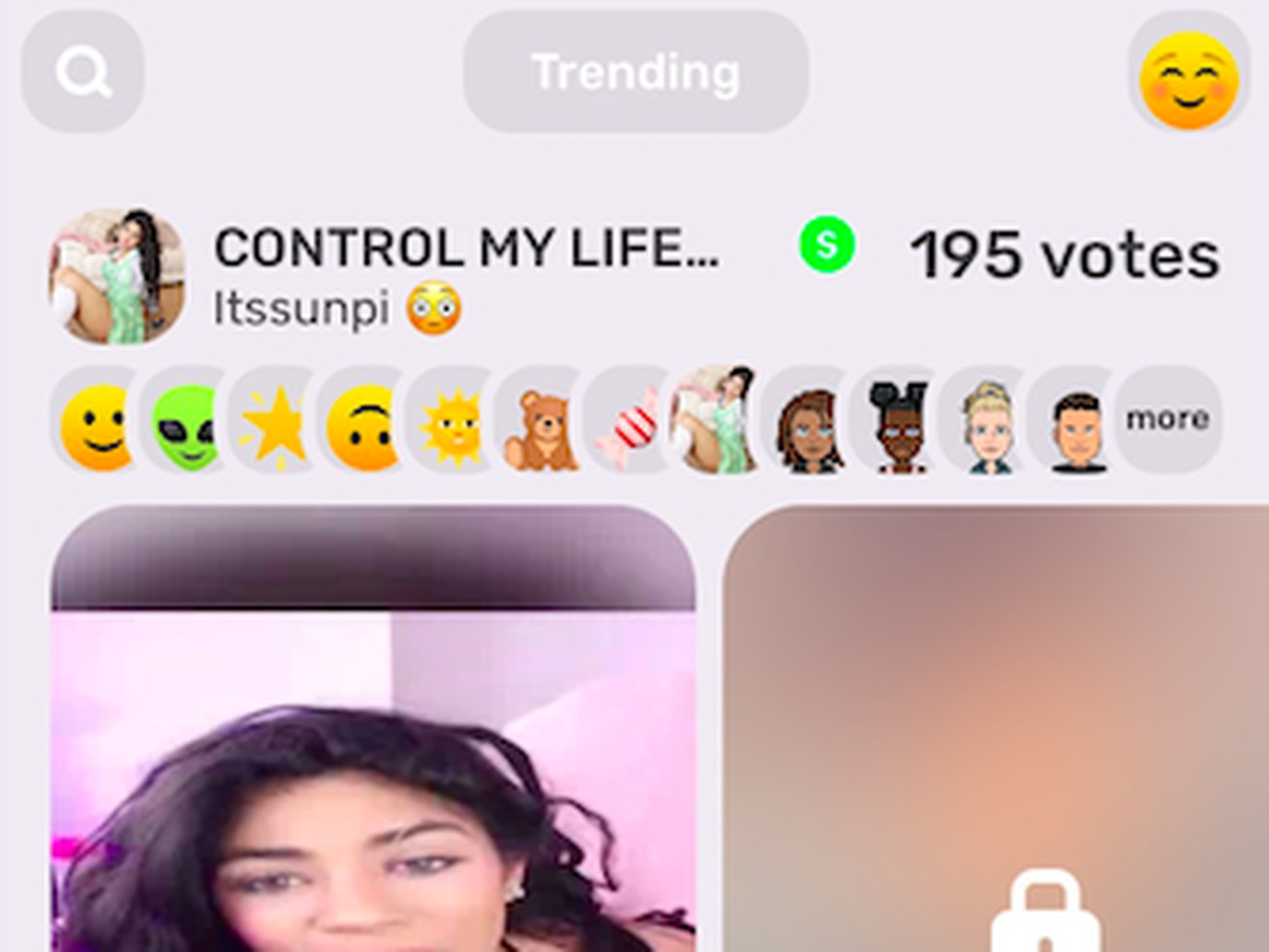Influencers can now let fans “control their lives” for money.
Hello from The Goods’ twice-weekly newsletter! On Tuesdays, internet culture reporter Rebecca Jennings uses this space to update you all on what’s been going on in the world of TikTok. Is there something you want to see more of? Less of? Different of? Email [email protected], and subscribe to The Goods’ newsletter here.
In the latest episode of Black Mirror, published in the New York Times, the creator economy has become even more dystopian than it already was. In this piece from Taylor Lorenz, entrepreneurs have found ways for creators to monetize literally every aspect of their lives, from what they eat for dinner to whether or not they should break up with their boyfriend. It’s a must-read, and you will feel your bones slowly turn to ash with every word.
I am mostly joking here; I don’t think the cottage industry of apps to help creators earn money directly from fans for increasingly diminutive labor is as bleak as it might sound. Although that’s difficult to remember when you read a sentence like, “‘Have you ever wanted to control my life?’ Lev Cameron, 15, a TikToker with 3.3 million followers, asked in a recent video posted to NewNew.”
Basically, what’s happening is that tech people are finally realizing that no one is going to use a new app unless there is a possibility of getting rich and/or famous off of it (an exaggeration, but also not), and so a slate of platforms are emerging to leverage that demand. There’s the aforementioned “control my life” app NewNew (although most of the content there seems to be more around polls asking whether you find a certain influencer “hot” or “not”); PearPop, in which you can pay popular creators to, say, comment on your Instagram; Rally.io, where creators can launch their own digital currency that can be used to buy said creator’s exclusive content; and Clout Market, where you can purchase NFTs that represent popular influencers whose worth rises and falls alongside their reputations.
While it is indeed extremely dark to watch a 15-year-old offer strangers the opportunity to “control his life,” apps like this could potentially open up avenues for more people to profit from the creator economy. As Li Jin argued in the Harvard Business Review in December, the gap between creators making a living off of their content and those barely making anything is widening. At this point, pretty much all the wealth is sprinkled among the very top tier of influencers — you can see this dynamic play out on basically any social platform, from OnlyFans to Twitch to Substack. “The Charlis and Addisons will always emerge and exist, but it’s vital for creator platforms to provide paths for upward mobility and democratize opportunities to succeed,” Jin writes.
Creators have long known that in order to build a sustainable career, they have to be adaptable to more than a single platform or revenue stream, because the rules are shifting all the time (consider the YouTube adpocalypse, in which creators’ income shrank rapidly due to the exodus of advertisers from the platform). It’s hard to imagine that a significant number of creators will get rich off of creating their own knockoff bitcoins or selling TikTok comments alone, but some might, maybe, and the fact that some of these new apps allow fans to be part of the market seems like another way of democratizing the clout industry, however off-putting it sounds.
Then again, isn’t this all just more labor for a segment of workers who constantly say they’re burnt out? And doesn’t this just place the burden of supporting creators on their fans rather than the platforms that profit off both of those groups? Of course. It would be great if influencers and audiences could steadily rely on platforms to have their best interests in mind rather than be hurriedly searching for the next new app to make up another 10 percent of their income. But we’re all gig workers now, baby! If you would like to purchase some BeccaCoin, email me.
TikTok in the news
- Pakistan has blocked TikTok once again for “immoral and objectionable” videos.
- Mental health TikTok continues to be a minefield of self-diagnosis, pseudoscience, and zero methods of distinguishing between “life coaches” and licensed health care providers.
- A YouTube channel devoted to predicting when certain celebrities will die made a video claiming that 16-year-old Charli D’Amelio was going to perish in a car accident on March 12. On March 11th, D’Amelio’s TikTok comments were flooded with goodbye messages, leading her to delete her latest video. As of press time, D’Amelio is thankfully still alive!
- Kid Cudi’s “Day N Nite” has become a viral TikTok audio, and Kid Cudi hates it.
- Commiserate with the job-hunters of TikTok as they try to find work during a pandemic: “It makes me want to stab myself in the eye with a fork many times,” said one.
- Welcome to the Mass House, the collective of TikTokers who do not actually live in the same house but share an account devoted to Massachusetts-related content, such as Dunkin’ orders and which towns in western Massachusetts are the ugliest.
One Last Thing
Forget body positivity, in 2021 we’re becoming plumes of blue smoke. “How dare I be a shape? Disgusting.” This is the wisest TikTok I’ve ever seen.
@whoreceress why im not body positive #YesDayChallenge #bodypositivity
Author: Rebecca Jennings
Read More



